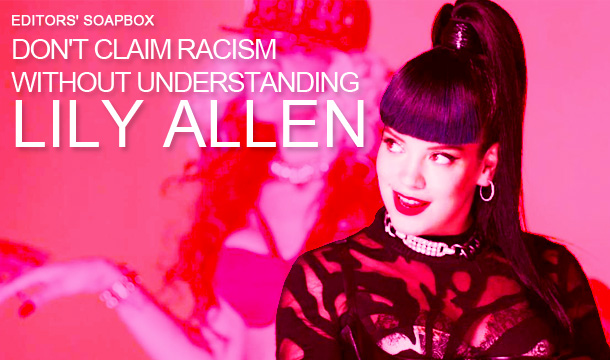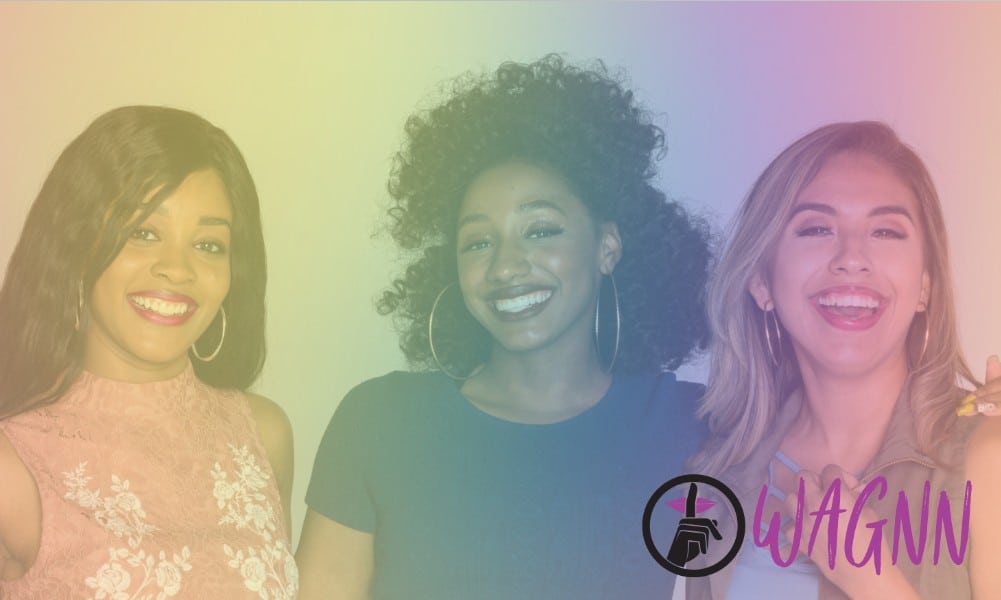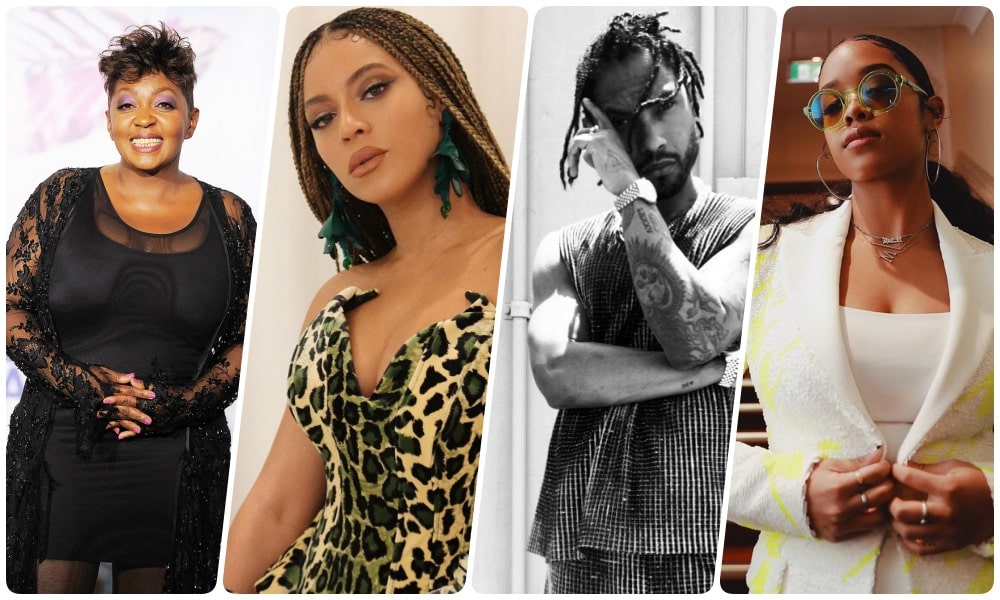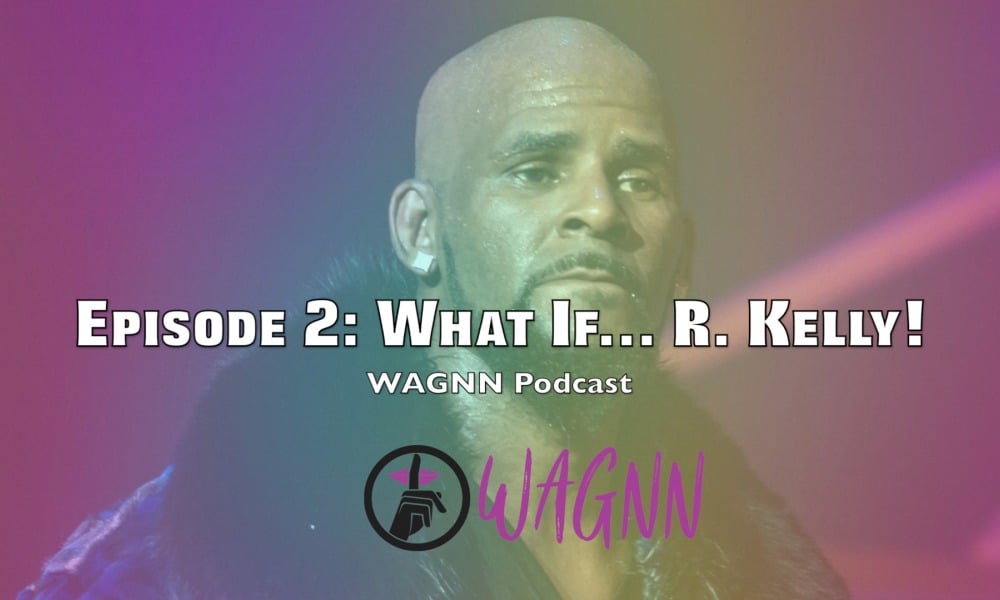Lilly Allen is no MILEY CYRUS! Save your breath and stop the comparisons folks — if that is what you are getting at. If you think Lilly Allen's new video seems offensive because of its "racial innuendos", then the sarcastic tone of the clip was totally missed. Yes, there is twerking (Madonna has been twerking since she had those pointy bras), bottle popping, and skimpy outfits. This visual merely helps to aid the purpose of the "Hard Out Here" song and concept. The images are simply art reflecting life. Despite the cancellation of programs such as BET's Uncut, there are still an extraordinary amount of super sexualized music videos that are programmed regularly on major outlets; just pick one that still plays music videos.
I get it. The messengers are almost as valuable as the message. "You're not a size six, and you're not good looking/Well, you better be rich, or be real good at cooking/You should probably lose some weight 'Cause we can't see your bones/You should probably fix your face or you'll end up on your own." Would those lyrics be easier to digest if it came from a person of the African American community? And why are we even bound by such things as twerking, bottles and skimpy outfits anyway? Truly, those lyrics apply to all women living in our society, no matter what race you check on your college application. Butt shots, Botox, and weaves have no color in this day and age; thank our favorite reality superstar, Kim Kardashian. It seems like she has become the definition of female success today.
When you are too quick to stamp a song, music video or joke as racist without understanding the full scope, it does not help to stop racism… in many cases, it has the reverse effect. It only widens the gap and prevents us from having a healthy, open dialogue. The fact of the matter is the video was an attempt to bring light to the foolishness of today's current cultural struggles.
Conclusion = Understand before you judge!
Watch for yourself and let us know your thoughts.
Are you quick to label something or someone as racist without fully understanding the context? It’s time to step back and take a closer look before making such claims.
In this Editor’s Soapbox, we’ll explore Lily Allen’s controversial music video for ‘Hard Out Here’ and why it’s important to understand the nuances of racism in pop culture.
At first glance, ‘Hard Out Here’ appears to be a satirical take on the objectification of women in the music industry. However, some viewers were quick to call out Allen for perpetuating racist stereotypes with her use of twerking black backup dancers.
But is it really that simple? By examining the context and intent behind Allen’s choices, we can better understand how race plays into this conversation and avoid jumping to conclusions about what is or isn’t racist in popular media.
Analyzing the Context and Intent of Lily Allen’s “Hard Out Here”
If you want to understand the true meaning and message behind Lily Allen’s ‘Hard Out Here’, you need to dive deeper into its context and intent.
The song was released in 2013, during a time when discussions about gender equality were becoming more prominent in the music industry. Allen herself had taken a hiatus from her music career to focus on motherhood, but returned with this track as a statement about the double standards women face in the entertainment world.
In ‘Hard Out Here’, Allen criticizes the objectification of women in popular culture, particularly within hip-hop and rap music. She also tackles issues such as body shaming and unrealistic beauty standards.
The satirical music video that accompanied the song featured dancers twerking, while Allen sang lines like ‘Don’t need to shake my ass for you cause I’ve got a brain’. However, some critics accused her of perpetuating racist stereotypes by using black female dancers in this scene.
It’s important to note here that Allen apologized for any offense caused by this particular aspect of the video. In fact, she clarified that her intention was not to use these dancers as props or tokens, but rather to highlight how certain genres of music often rely on these types of visuals.
By analyzing both the lyrics and visual components of ‘Hard Out Here’, we can see that its context and intent are actually quite progressive – it seeks to empower women while also calling out problematic elements within popular culture.
The Importance of Understanding Nuance in Discussions of Racism in Pop Culture
You need to recognize the importance of understanding nuance in discussions of racism within pop culture, as it allows for a deeper and more meaningful conversation about the impact and implications of these representations.
Pop culture is a powerful tool that can shape our perceptions and beliefs, and it’s important to unpack the messages that are being conveyed. However, this can’t be done without recognizing the nuances within these messages.
For example, when discussing Lily Allen’s ‘Hard Out Here,’ it would be easy to jump to conclusions and label her as racist without fully understanding the context and intent behind her lyrics. While there are certainly problematic elements within the music video, such as its use of black backup dancers, it’s also important to acknowledge how Allen was attempting to critique sexist norms within the music industry.
By understanding nuance in discussions of racism in pop culture, we can have more productive conversations that lead to real change. Instead of simply calling out problematic representations without any deeper analysis or thought about their implications, we can dig deeper into why they exist in the first place and how they can be addressed moving forward.
This approach allows us to be more effective advocates for social justice in all areas of society.
Conclusion
So, there you have it. Before rushing to label someone or something as racist, it’s crucial to analyze the context and intent behind it.
As seen in Lily Allen’s ‘Hard Out Here,’ what may seem like perpetuating stereotypes at first glance can actually be a commentary on them. Understanding nuance is key in discussions of racism in pop culture.
It’s also important not to dismiss people who bring attention to problematic elements in pop culture as simply looking for things to be offended by. Instead, we should listen and try to understand where they’re coming from.
By doing so, we can engage in meaningful conversations about representation and actively work towards creating a more inclusive society.








